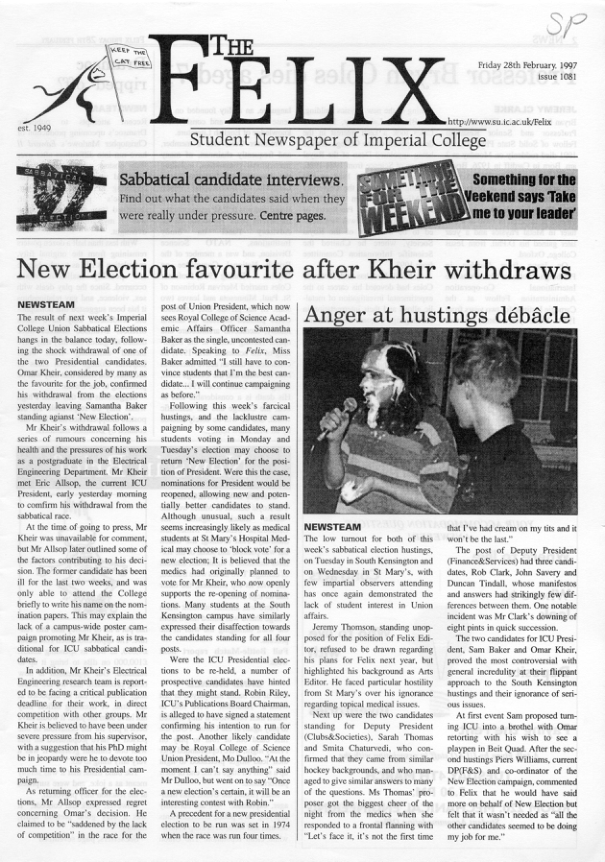Westminster Eye - Hamish Common
A programme depicting sexual abuse was broadcast on ITV this week. "No Child of Mine" - commissioned by Meridian Broadcasting - depicting the gradual fall of a kind but weak man into a pimp and abuser, with the ghouls of our nightmares reconciled with the family next door. Comments were mainly along the usual lines, that such things ought not to be shown on our screens.
One may ask: who makes these comments? Who is kindly deciding what the public ought and ought not to watch? Mainly it is journalists and backbench MPs, plus occasionally councillors and various pressure groups. These groups of people certainly don’t spring out at me a being representative of the public as a whole: in fact each job requires someone with a big mouth and a willingness to use it.
A perfect example of this is Westminster City Council’s decision a few months ago to ban JG Ballard’s ‘Crash’, a film depicting fantasies about car crash victims, from screens within its area. The British Board for Film Classification had already given it an 18 Certificate, but Westminster used its legal right to ban it anyway, preventing a large number of West End cinemas from showing it. I can be more precise about who made this decision - it was a bunch of councillors, most of whom admitted not having seen the film ("but that is not the point" said one councillor) and were taking a wonderful opportunity to get themselves onto news programmes and newspaper pages with long tirades against the tide of filth and their brave defence of decency.
When listening to their speeches, I couldn’t help be reminded of how similar it sounded to dictatorial governments defending their right to censor news reports and opposing views. Both arguments stated that the State had to act for the common good in defiance of certain members of the public. Of course the good councillors aren’t despots, but their censoring of a film that they hadn’t seen, based on their own opinions, which were not in the least representative of the public’s is dangerous and bad.
It is perfectly possible for a film to be shown only on cinema, or for more cuts to be made in a video version of a particular film. Natural Born Killers, a film of similar ill-repute, was shown on cinema, with cuts, and its release on video has been suspended indefinitely. The BBFC is publicly accountable for its actions, and this is the best compromise we can have between decency and undue censorship.
The media are another part of the problem: they are always willing to exaggerate and fan the flames when something comes out on television. In nearly every report on such programmes, you will find a quote by Mary Whitehouse. All they have really done is phoned her up, saying there’s a new revolting programme out and what does she think about it? Their tendency to give column inches to the people mentioned above just biases the argument and creates a bigger news story out it, since plenty of people are always ready to jump on the bandwagon and publicise themselves before an election.
In any democracy freedom of choice of the individual is of paramount importance, with the authorities giving adults suitable guidance and allowing them to see what they wish. Britain has some of the strictest codes on television and video ratings, and they are unlikely to change given the influence of the censorship lobby on these issues.
Councils should be wary of using powers of censorship - the opinions of a whinging few should not be assumed to be those of the public at large





